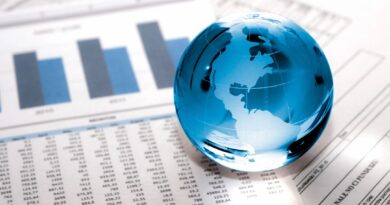What Europe Really Needs for an Economic Turning Point
The Focus on Consumers: Driving Economic Recovery in Europe
As Europe seeks a definitive economic turnaround, there is a growing emphasis on consumers.
With the anticipation building for the first ECB rate cut and some signs of recovery becoming apparent, such as the latest Eurozone service activity data, a stronger and more solid consumer confidence would give the region the necessary boost.
The economic recovery in 2024 could be the best way to draw a line after years of hardships in Europe, ranging from the pandemic to the subsequent cost of living crisis.
With production still stagnant, policymakers are relying on household spending to stimulate growth.
However, the evidence so far suggests that this has not truly materialized in the first quarter.
While last week’s data showed the region exiting a recession and all four major Eurozone economies growing more than expected, the consumption picture was mixed, with both Germany and Italy still struggling with weak domestic demand.
Consumer demand is now seen as the engine for Europe’s still shaky recovery, especially when compared to the economic strength of the US.
Understanding the mindset of the fickle consumers in the region has long been an obsession for the ECB.
President Christine Lagarde recently pointed to household behavior as the main difference between the European and US economies, also highlighting how the generous pandemic stimulus from Washington and lesser concerns about crises in the Middle East and Ukraine make a difference.
It is in Germany, the largest European economy, where consumer strength will make the most significant difference.
German households are among the most cautious in the region, troubled by the implications of the war in Ukraine which have effectively halted the supply of cheap gas and by the political indecision of a quarrelsome government.
However, glimpses of light seem to be emerging.
Ifo Institute President Clemens Fuest told Bloomberg Television last month that household spending could help drive growth in the second quarter.
On Friday, economists at Deutsche Bank AG raised their forecasts for 2024, expecting a growth of 0.3% – instead of a contraction of 0.2% – stating that private consumption is set to recover more strongly than initially anticipated.
Meanwhile, according to a statement released on Monday, the consumer expectations indicator compiled by the German Retail Federation HDE rose to its highest level since November 2021.
What will trigger and sustain such spending is if people have a more certain feeling that the economic environment is becoming less volatile.
“Nothing in the data speaks of a strong increase in consumption,” said Rolf Bürkl, head of consumer climate at NIM, which conducts consumer confidence surveys in countries including Germany.
“But there is a strong psychological factor that is often underestimated: uncertainty.
It is important for consumer spending, as it is for business investments.”
If these effects could replicate across the region, it would signify a recovery that ECB officials have long awaited and predicted, having consistently overestimated a recovery in private consumption.
The Dutch retail giant Ahold Delhaize NV, owner of the Albert Heijn BV supermarket chain, expressed optimism in February about the prospects for European consumer demand, after volumes were positive in the fourth quarter for the first time in over two years for various Ahold Delhaize brands.
“We are at a turning point,” said Antonio Espasa, chief economist for Europe at Santander CIB, citing wage growth, falling inflation, and the prospect of interest rate cuts by the ECB as driving factors for demand in the latter half and beyond.
Economists interviewed by Bloomberg predict that private consumption in Spain will grow at twice the pace of the euro area and nearly as much as in the United States, where they are helping the economy expand at a significantly faster rate.
However, attention should be paid to the data from Italy.
According to Istat, in April 2024, both consumer and business confidence in Italy worsened: the consumer confidence index decreased from 96.5 to 95.2, and the composite indicator of business confidence dropped from 97.0 to 95.8.




